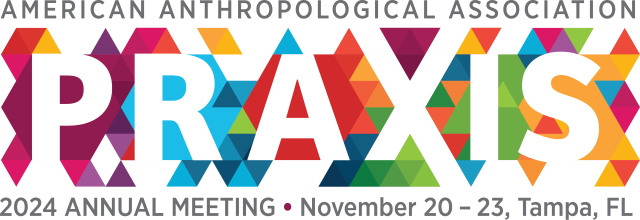De-mystifying the Peer Review Process
All three calls for participation; Executive, General and Late-Breaking, go through a peer review process. An overview of each process is below
Executive Call
The Executive Call is a competitive submission process with limited space allotted on the program for these sessions. All proposals, submitted to the Executive Call, are reviewed by the full Executive Program Committee (EPC). The EPC reviews the submission based on the relevance to the Annual Meeting theme, Praxis.
General Call
When the session organizer submits their proposal to the General Call portal, they are required to select which sections of the AAA they would like to review their proposal. They will have the opportunity to select a primary, secondary, and tertiary option for review. The decision of which section to choose should be made based on the content of the proposed session and the intended audience of the proposed session. Participants in the proposed session do not have to be a member of the requested section to choose them for review.
After the proposal is submitted and the general call portal is closed, elected representatives from each section will review the proposals submitted to their sections for review in three rounds. During these three rounds, reviewers will evaluate relevancy, academic merit and over quality of each session, and rank them accordingly. The recommendations from the section representatives are forwarded to the executive program chairs, who will assume final responsibility for the acceptance or rejection of proposals. The executive program chairs prepare the final program by scheduling the sessions based on the final scores of Round 3 review.
Late Breaking Call
Late-Breaking submissions are reviewed based on three key elements; submission is topical to one of the late-breaking themes, selected by the Executive Program Committee Co-Chairs, the submission is timely to findings not available until after the closing of the General Call for Participation and the submission is relevant to current events. The late-breaking call for participation is highly competitive as there are limited spots on the program available to late-breaking sessions.
Scheduling
AAA staff do not review, evaluate, or schedule the Executive or General submissions or participate in the peer review process. Scheduling of the AAA Annual Meeting Program is done by the Executive Program Chairs. When you make your submission, there is an opportunity to make scheduling requests. We cannot promise that the Executive Program Chairs will be able to honor those requests, but the Chairs will do their best to accommodate them. Sessions are scheduled according to many factors, including their statuses as executive, general or late breaking, if they are invited or co-sponsored by a section(s), the session’s rating given during peer review, and to avoid scheduling conflicts with other sessions the participants are in. Due to the complexity of this process, it is possible that your session will mistakenly conflict with something else. You will have a chance to review the scheduling of your session once we have released the preliminary program early August and request any corrections by the deadline of September 27. After you have requested corrections, AAA staff will work with the EPC to move your session to a non-conflicting time slot. Note- due to the complexity of this process, we cannot accommodate last minute changes, regardless of the reason, including travel conflicts.
Final Program Decision
The AAA follows a policy of peer review and merit consideration for acceptance and inclusion on the final program for the AAA’s Annual Meeting. The programming decisions are made by a committee composed of section program reviewers, executive program committee members, the executive program co-chairs, and officers of the AAA.


